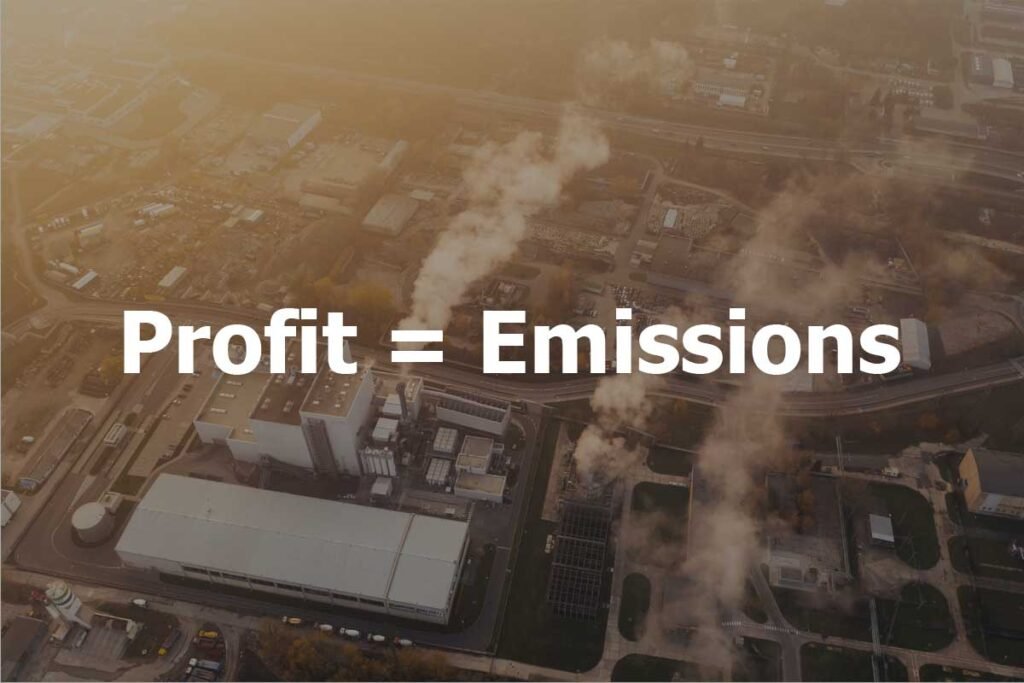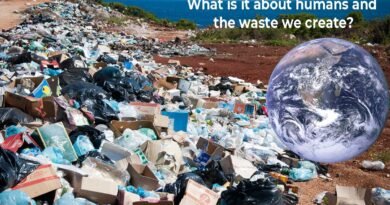Whose responsibility is it to reduce Emissions, individuals, Governments or Companies?
Climate Change is a reality some of us now believe is happening. We, humans, adjust our environment according to us and don’t care about what is being destroyed in the process. We do still have time to stop climate change, but whose responsibility is it, is it an individual person’s responsibility, or the big corporations or the government? Because whenever climate change topic comes up everybody says to use a bicycle to work or walk to travel places, use solar panels, windmills or nuclear energy for electricity, go vegan. But would this solution actually stop climate change? Let’s see that if we switch to renewable energy and if we buy electric cars will that reduce the emissions.
Let’s see the stats first and understand which industry pollutes more.
Stats
- The major sectors that contribute to emission are Energy, transportation. Construction, Agriculture, Industry
- 25% of emission are caused by Energy consumptions. Like electricity.
- 8% of carbon emissions are released from the concrete manufacturing industry
- Food accounts for around 10% of the total emissions. 57% of the food emissions comes from animal-based food, with 29% coming from plant-based foods.
- Waste landfills contributes to 20% of global anthropogenic methane emission
- The total emission caused by transportation is 29%. Which includes all the cars, planes, trucks, boats, ships and trains.
- The average passenger car emits 120 grams of CO2 per Km. Use this link to calcualte your vehicle carbon emission.
- India produces 1/3rd of the total energy consumption from renewable energy. India consumes 373 GW out of which 136GW (38%) comes from renewable energy.
- The richest 1% emit double when compared to the poorest 50% global population.
- The global average atmospheric carbon dioxide in 2020 was 412.5 parts per million (ppm for short), with a range of uncertainty of plus or minus 0.1 ppm. Carbon dioxide levels today are higher than at any point in at least the past 800,000 years
- CO2 emissions fell by 6.4%, or 2.3 billion tonnes, in 2020 due to the Coronavirus attack
- Total CO2 Emission per Year globally is 43 Billion tons

Problems

The top 100 companies are responsible for 71% of emissions, according to this study.
We have been lied to by all these oil corporations for years now, they knew climate change would be catastrophic in 1970-the 80s, yet they didn’t do anything about it. For one reason profit. Switching to renewable energy would cost them billions of dollars. If these oil corporations would invest in renewable energy they would lose their profits. But we have to understand any new form of energy or technological advancements is expensive at first, but as we start using them over the years it gets less expensive. And we cant prolong this revolution, it could be lethal for us in near future.
There are various examples in history, of how tech or an energy form has become cheap over the years because of its consumption.
A developed nation emits the most, as it needs to have good infrastructure, road connectivity, and good technological advancements. All the developed nations like the USA and Europe did the same thing, or we can say still doing the same thing. With the USA having 21% and Europe having 34% energy coming from renewable energy. So any developing nation that aims to become a developed nation will make the same mistakes and cause emissions. Like China and India and other developing countries, India has a capacity of 96.96 GW of energy coming from renewable energy i.e 25%, and China has 26% of its total energy coming from renewable energy.
Meat consumption causes 57% of total food emissions and only accounts for 18% of the world calories.
Even still the rich and developed nations emit more. According to a study, The Richest 1% emits double when compared to the poorest 50% of the global population. This is affecting deeply as the developing nation that is on the verge of becoming a developed country. Hence the developing nations should learn from the developed nation’s mistakes and try to switch to renewable energy.
Every nation should have a goal like Net Zero emissions, though this is not going to be easy to achieve, having a higher aim will help achieve small targets.
Solutions
I am no expert on this topic, but I know that the temperature has risen, the winters are getting warmer, and the summers are getting hotter. So I will provide my opinion on what can we do together, To Stop climate change and switch to renewable energy the government, companies and individuals all need to act together. Let’s see what part each and everyone needs to play.
Individual person’s role
First, an individual needs to understand climate change is happening.
We all need to buy electric cars, we need to use solar or nuclear energy, we need to ride bicycles, it looks like it’s completely our responsibility to reduce global warming, at least this is what has been said in all the ads and by the companies and governments. Yes, I agree we are the end consumers, and we are the ones who consume all the products. But what we don’t realize is these companies entice us to use their products.
Every time a new mobile is launched they will portray it in such a way that you will think your current phone is useless and you need to get that new one. The same goes for cars, clothes, houses and much more. But this is mostly an issue with the rich, as they have that extra cash to spare and for them buying the latest tech and model gives them an edge on society. Which makes them feel better. A poor will not think about buying unless they really need it. This is the difference that causes the rich to emit more when compared to the poor.
A person needs to understand that when he/she is buying a new product the old product is thrown to waste and not properly recycled. Manufacturing a new product causes emission levels to rise. So we need to be smart and avoid buying unnecessary products and push these companies and the government to recycle the old products if it becomes useless.
We also need to push the governments to impose strict laws and policies on companies so that the companies emit less and switch to renewable energy
We also need to reduce the consumption of meat and try to consume plant bases diet as much as possible, I know it is easier said than done, but we can try
Role of the Government
The government needs to provide more subsidies to a sustainable way of energy form rather than for coal and oil extraction. They need to provide subsidies to companies that are switching or building new renewable industries. Additional subsidies can be provided to those companies that innovate towards renewable energy.
The government needs to impose strict policies for the level of emissions, if the companies surpass those levels they should be fined heavily, or in extreme cases take away the licence of a company. Also, companies need to be fined if they pollute our environment
Government should prepare the infrastructure for renewable energy like solar energy, Nuclear Energy, wind energy, geothermal, and hydropower. They should invest more in these technologies and new innovations. They should also improve the charging and overall infrastructure for electric cars, they should help companies in doing this which will make the process faster.
India in the recent COP26 meet has put forth 5 objectives that they aim to achieve. 4 objectives by 2030 and one objective by 2070. I have discussed it here.
Role of the companies
- Companies need to invest in renewable energy
- They need to recycle old products and reuse them
- Planned obsolescence needs to be stopped
- All the manufacturing industries should have a proper way of maintaining the waste that’s coming out from their factories
- I agree all the businesses work for profits motive, but they have to switch to renewable energy by investing in them, this will reduce the profits now, but down the years it will benefit them
- A company should innovate now into new technologies which will give them an edge over other companies which don’t, keeping the competition alive
Additional Solutions
Iceland is the country that gets its 100% energy from renewable sources. All the countries should learn from them and try to opt their strategies
There is a solution of capturing CO2 and storing them or turning them into rocks or other products, but it is expensive. But we have 15 active plants around the world that capture 9000 tonnes of CO2/year, we need to increase the count of it. Actually, there is a benefit of capturing and storing the CO2 for the Oil companies. If the CO2 is stored in an oil well It will decrease the density of the oil and the oil will come to the surface increasing the productivity of the oil companies. This is not really a good scenario because the Oil companies will keep on polluting. And we will keep on spending money to remove CO2 and the Oil companies will keep on polluting the environment. This way we will never meet net-zero emissions.
We need to stop emitting and cleaning our existing atmosphere to stop climate change. So capturing is a good idea, but it should not be stored in oil wells, instead, it should be locked under the surface, converted to rocks, or can be recycled and converted to some products. But this technology can’t be implemented by one company or country, all the governments and big corporations should come together and work towards this.
Because even if we stop polluting the existing emitted gases will not magically disappear. We need to remove that from the atmosphere. And capturing CO2 and storing it underground or converting it into products would be a much better option
Conclusion
These are my opinion and some of you might have a different one. But one thing we all can be sure about is that climate is changing and we all need to stop climate change together. So we need to act now and switch to renewable energy and stop climate change. The emission will be reduced by what we do together not only by the end consumer.
Reference
https://www.unep.org/interactive/six-sector-solution-climate-change/
https://www.iea.org/data-and-statistics/charts/global-energy-related-co2-emissions-1990-2021
Global Emissions





